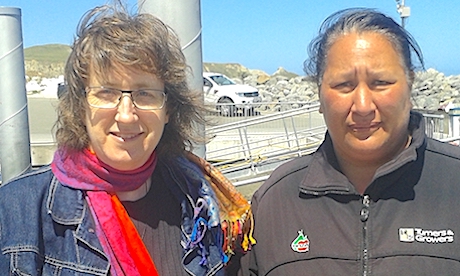“Right now, our staff are in Kaikōura with Te tai o te Marokura Health and Social Service, looking at how the earthquake has impacted kai moana in the area, and how this has in turn impacted whānau health, said Caritas Aotearoa New Zealand Director Julianne Hickey.
She was making an oral submission on the 2017 Budget to the Finance and Expenditure Committee.
“We have heard from local tangata whenua that they are concerned the iwi voice is missing in the decisions made in the earthquake recovery,” she continued.
“We support the government prioritising a response to the Kaikōura earthquakes, but the response must also address the impact on the health and psychosocial well-being of people and their communities,” Hickey said.
The submission sited the local Kaikōura community affected by the earthquake and communities in New Zealand who will be most affected by climate change as examples of vulnerable groups that should be prioritised.
Hickey drew the committee’s attention to the lack of consideration given to climate change impacts on New Zealand’s vulnerable communities, despite Dr Jan Wright (Parliamentary Commissioner for the Environment) discussing last year with the same committee the fiscal implications of sea level rise and the importance of central government leading adaptation efforts.
“We see that it is inconsistent to prioritise paying down debt in order to increase our resilience to economic shocks and natural disasters, and then to not prioritise mitigating and adapting to climate change,” she said.
Other issues covered in the submission included:
- Affordable and stable home for all
- Protecting migrants rights
Download a PDF file of the written submission
Source
- Supplied
- Image: www.caritas.org.nz
